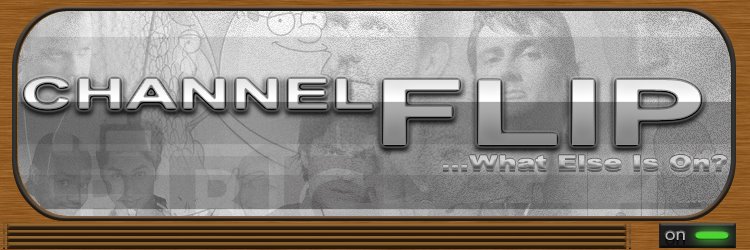As much as I hate to disagree with the fountain of modern wisdom that is
The Times' Catlin Moran, who is it who keeps letting Russell T Davis write the Doctor Who finales? Whoever it is, they're an idiot. I mean, let's just have a look back here. In series one, the Earth was largely controlled from the Gamestation, which promptly turned out to be Dalek run, then the Daleks conquered the Earth, and then, moments from the end, the Daleks were destroyed by Rose, in an almost literally Deus Ex Machina way. In series two, you may recall, the Earth was transfixed by a load of ghosts, which promptly turned out to be Cybermen, then the Daleks conquered the Earth, and then, moments from the end, the Daleks were destroyed by The Doctor by pulling a lever. In series three, the Prime Minister promptly turned out to be the Master, then a race which are
basically Daleks conquered the Earth, and then the pseudo-Daleks were destroyed by The Doctor in what can only be described as a Deus
Via Machina way. Is anybody else spotting a pattern here? Does it have to be Earth that's under threat? I think The Satan Pit was "big" enough to make a blinding series finale, and one that didn't conform to the above pattern.
I think this year's finale has a lot to answer for. It stuck like glue to the formula laid out by the last two years, and it added a whole load of plot holes and lazy cop-outs. The two biggest such cop-outs are intrinsically linked. The first was the "paradox machine". It's not what I'd call a clever bit of writing, but I didn't mind it at first. We don't really know what a TARDIS is or how it works, so the idea that it could sustain a paradox is within the realms of what I'm prepared to accept. But its real crime wasn't clear until later.
The Red Dwarf episodes "White Hole" and "The Inquisitor" both ended the same way: the eponymous phenomenon was eventually conned into undoing the whole episode. This is a fairly unsatisfactory sounding ending, so it must be treated with care. Anyone who has listened to all four commentaries on the Hot Fuzz DVD will know that a good writer will introduce the eventual resolution to the plot as early on as possible. The White Hole was making time skip about randomly from the beginning, and The Inquisitor was all about deleting things from the past. The "It Never Happened" conclusion was not so much a cop-out as it was inevitable.
I can only assume that the "paradox machine" was an attempt to do this (as well as a clue as to the "Toclafane's" true identity). It was introduced nice and early, and it saved the day. But to my mind, it didn't set up the ending nearly well enough. Aside from anything else, we know that paradoxes can exist in the Doctor Who universe (which I refuse to refer to as the "whoniverse"); they are merely accompanied by a horde of wingéd black gargoyle-looking creatures. You don't need a TARDIS to keep them up; just a giant strip of flypaper and something suitably old to hide behind (such as most of the script — for the record, "there was a really bad year where almost everyone died because of machines with human brains inside them but it's okay because it never happened really" is a plotline that was used in Star Trek Voyager a decade ago, and The Inquisitor turned the hero into an old man in his bid to survive five years before that).
In The Inquisitor, the ending was inevitable because it was the natural conclusion of the preceding events. In Last Of The Time Lords, the ending was inevitable because Davis had clearly written himself into another corner and we all know he's far too much of a softie to allow the episode to end with the Earth practically in ruins.
In fairness to Davis, he's done a good job getting Who back onto TV, and he's been good at setting up storyarcs and setting a coherent and engaging long-term plot. But in general, I don't like episodes he writes as much as the ones other people write. Steven Moffat can produce something as good as Blink with 45 minutes and a strict instruction not to tie up David Tennant's filming schedule (bear in mind that when Davis was given this same brief he wandered off and wrote the almost universally hated Love And Monsters), and Russel T Davis can't produce a good plot given six months of buildup, the lion's share of the effects budget, and two and a half hours of screen time. If the BBC really want people to watch Doctor Who, then they should give the big important episodes that lots of people will watch to the most competent writers, and so far I don't think that means Davis.
Though well done to him for making the "gun in four parts" plot a red herring. That would have been just stupid. Silly Master, falling for a trick like that.


